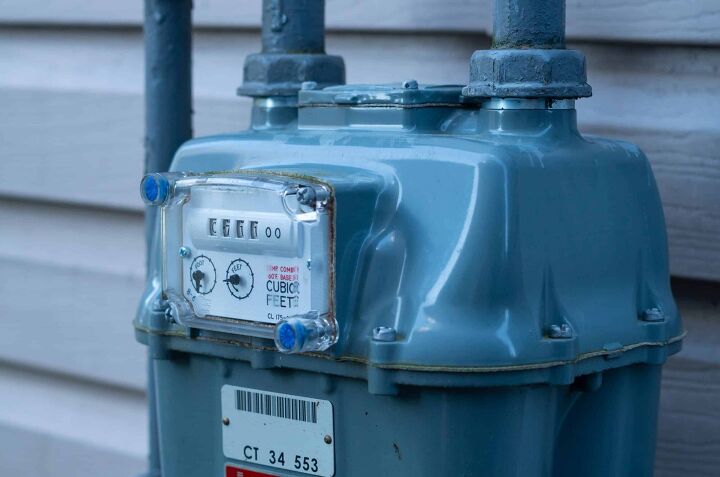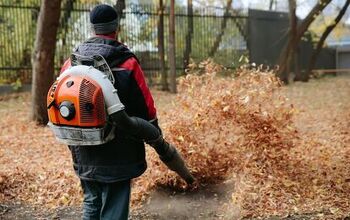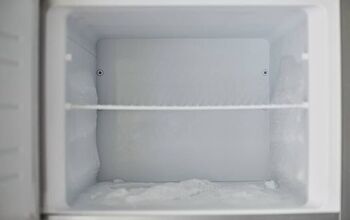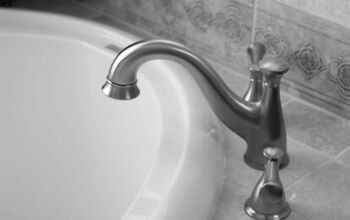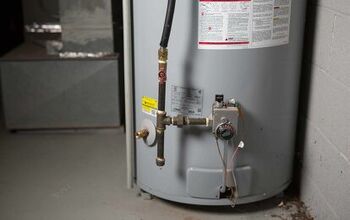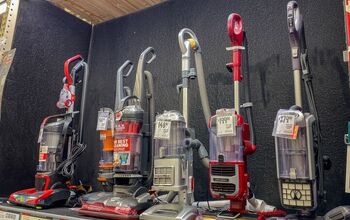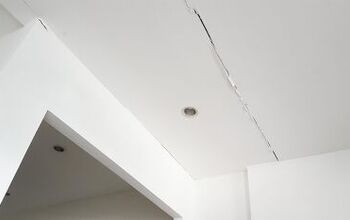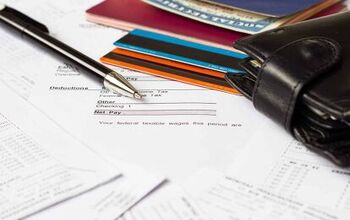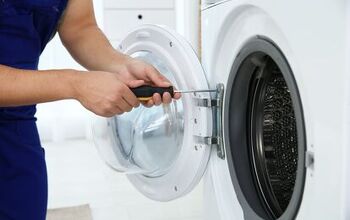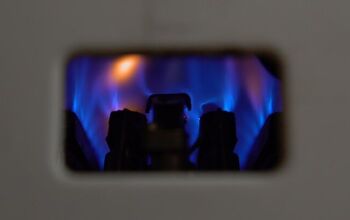Is Your Gas Meter Squeaking? (Possible Causes & Fixes)

You finally locate that strange squeaking noise. The noise, a high-pitched squeaking sound, is coming from your gas meter. What causes a gas meter to squeak and what should I do about it?
More than likely, the cause of the squeaking noise is the internal parts of the gas meter rubbing against each other. The sound is not dangerous, as the gas measurement system is encased in a metal housing. Check if your gas meter is working well first, and then notify the gas utility company.
All gas meters have internal moving parts that measure the amount of gas that flows into your gas system. Like any moving machine, parts wear out or get out of adjustment. Other problems sometimes happen with gas meters, but they are rare. A bit of understanding about gas meters can help any fears that the gas meter may start leaking.
Do you suspect other problems with a gas appliance? Check out this article about gas-fired furnaces.
Do You Need Gas Line Installation or Repair?
Get free, zero-commitment quotes from pro contractors near you.

How Does a Gas Meter Work?
There are three primary types of gas meters used in the industry. Two of these varieties of natural gas meter uses known volume methods of measurement. The third type uses the actual flow rate of the gas to measure the amount delivered through the meter. All three types have moving parts that can make noises.
Diaphragm Meters – Round and Round the System Goes
The diaphragm gas meter has four chambers. A membrane, the diaphragm, covers the chamber. A rotating piston moves from chamber to chamber, allowing gas to stretch the diaphragm and fill the chamber with gas.
The piston then moves to the next chamber, and the gas-filled chamber goes to your home gas system. By counting the number of chambers filled and released during a billing cycle, the utility can calculate how much gas you use.
Rotary Displacement Meters – Counting Turns
Rotary displacement meters use the same principle of filling and counting a known space. In a rotary displacement meter, two opposing rotary impellors form the chamber. Gas enters the chambers created as the impellers rotate and the meter counts the number of turns on the impeller.
Turbine Meters – Go with the Flow
Turbine systems also measure flow rates but in a slightly different way. The turbine gas meter consists of a gear system, a turbine in an extrusion housing, and a sealed gas meter body. When gas flows through the extrusion housing the turbine, the turbine begins to turn.
The gear body counts the number of turns the turbine makes. The gas company uses this number to calculate how much gas has flowed through the meter.
Gas companies use turbine meters in a system that experiences fluctuations in the flow rates or pressures in the gas system. The turbine can accurately measure gas flow despite fluctuations in the system, making turbine meters a bit more accurate than other types.
Video: Fixing Your Squeaky Gas Meter
That Squeaking Your Hear Maybe Normal
Every style of gas meter has moving parts. Most of these moving parts are plastic designed for use with natural gas. However, natural gas may contain traces of other gases that can wear or damage the plastic parts. In time, the plastic parts will also wear out.
The squeaking, clicking, or moaning, you hear coming from your gas meter is not unusual. These noises can be annoying and irritating, especially if the gas meter is inside your home. A call to your gas utility will have a technician on the way. The technician will either fix the meter or replace the noisy one with a new meter.
If the Meter Makes Noise, is it Dangerous?
Absolutely not. Gas meters are safe. The entire gas measurement system sits inside of a sturdy metal housing. The housing has seals to prevent any leakage. Even if the measuring system fails, the housing will contain the gas.
Is there anything I can do to Stop the Squeaking?
Again, the answer is no. Your gas meter is the property of the gas company. You should never attempt to fix, repair, or remove a gas meter. Tampering with a gas meter, even in good faith, can be a criminal act in some states. Your best bet is to call your gas utility and let them handle the problem.
How Do I Know if the Gas Meter is Working Right?
Most states regulate gas meters and require inspection and certification regularly. However, if you suspect that your gas meter is not correctly calculating the amount of gas you are using, you should check on the meter readings. Reading your gas meter is not hard and can be done in a few simple steps.
Step 1 – Locate the Meter and the Dials
Find your gas meter and look on the front. You will see a row of dials with the number 0 through 9 printed on the dial. The number of dials may vary between manufacturers of the gas meter, but the process is the same.
Step 2 – Work from Left to Right
Always read the dials from left to right. If the hand on one of the dials is between two numbers, the proper reading is the lower number. Write down the number you get after reading the dials from left to right
Step 3 – Calculating the Amount of Gas You Use
You need two readings to calculate the amount of gas that the meter has recorded. A starting reading gives you a baseline number. A second reading, taken several days apart, gives you your final reading. Subtracting the baseline reading from the final reading gives you the total amount of gas passed through the meter.
What The Number Means
Most gas utility companies measure gas usage in cubic feet. In areas of the country that get extremely cold, the measurement may be in thousands of cubic feet. To determine what units your utility company measures, a phone call to the customer service department will be all it takes.
You will also need to know the rates that the gas utility company charges for each unit of measurement. With the current rate, you can calculate approximately what your gas bill is for the period you measured.
But What Does that Tell Me?
If you are doing your meter reading, you should know about how much gas you have used during the period you measured. If the only natural gas appliances in your home are your heating system and a water heater, a high gas meter reading in the summer months could be a clue to a problem.
Be Safe – Work with your Gas Utility if You Suspect a Problem
Natural gas has proven to be an extremely safe product. Gas companies go to great lengths to keep their systems operating at peak efficiency and safety. If you suspect a problem with your gas meter, contact your gas utility and report the suspected problem.
If you think your gas meter is leaking or you can see damage to the meter itself, there are some things you should do immediately.
- If there is no apparent leak, call the gas utility company promptly.
- If the gas meter has visible damage or you can hear escaping gas, immediately evacuate the area around the leak. Call 911 and report the gas leak.
- If the leak is in your home, get everyone out of the structure. It may also be a good idea to evacuate your neighbors if you live in an apartment of joined housing.
Uncontrolled natural gas can quickly become an explosion and fire hazard. Never try to diagnosis a gas leak yourself. The act of flipping a light switch may be all it takes to create an explosion and fireball.
Do You Need Gas Line Installation or Repair?
Get free, zero-commitment quotes from pro contractors near you.

Annoying, But Not Really Dangerous
A gas meter making noise may be annoying but doesn’t present a danger unless the meter is damaged somehow. The gas utility company owns the meter. You should notify the gas utility promptly of any problem with your gas meter or service.
We hope that this article has answered your question about your squeaking gas meter. Understanding how meters work and how to keep track of gas usage by reading your meter can be handy tools.

Dennis is a retired firefighter with an extensive background in construction, home improvement, and remodeling. He worked in the trades part-time while serving as an active firefighter. On his retirement, he started a remodeling and home repair business, which he ran for several years.
More by Dennis Howard



